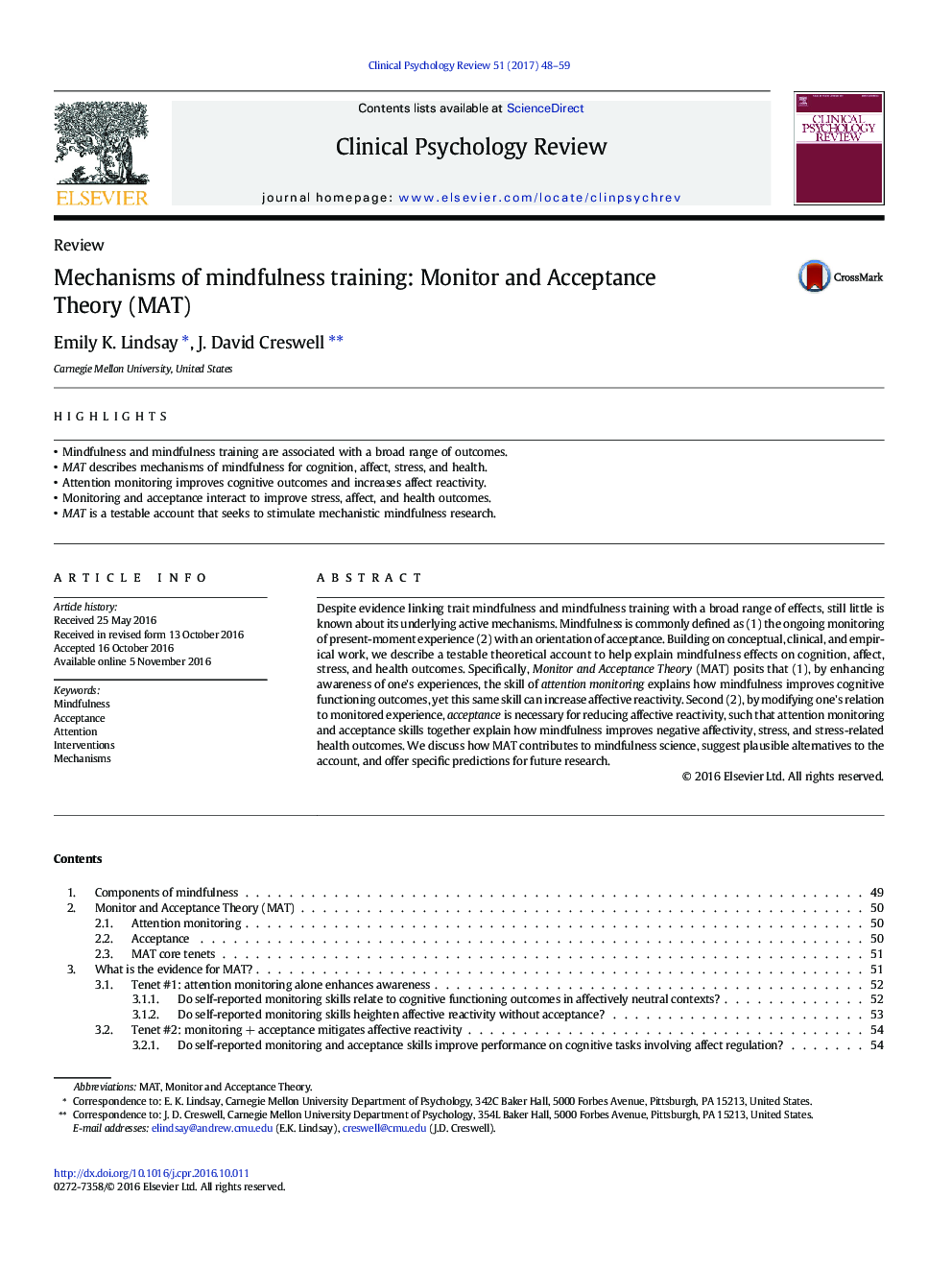| کد مقاله | کد نشریه | سال انتشار | مقاله انگلیسی | نسخه تمام متن |
|---|---|---|---|---|
| 5038459 | 1472840 | 2017 | 12 صفحه PDF | دانلود رایگان |

- Mindfulness and mindfulness training are associated with a broad range of outcomes.
- MAT describes mechanisms of mindfulness for cognition, affect, stress, and health.
- Attention monitoring improves cognitive outcomes and increases affect reactivity.
- Monitoring and acceptance interact to improve stress, affect, and health outcomes.
- MAT is a testable account that seeks to stimulate mechanistic mindfulness research.
Despite evidence linking trait mindfulness and mindfulness training with a broad range of effects, still little is known about its underlying active mechanisms. Mindfulness is commonly defined as (1) the ongoing monitoring of present-moment experience (2) with an orientation of acceptance. Building on conceptual, clinical, and empirical work, we describe a testable theoretical account to help explain mindfulness effects on cognition, affect, stress, and health outcomes. Specifically, Monitor and Acceptance Theory (MAT) posits that (1), by enhancing awareness of one's experiences, the skill of attention monitoring explains how mindfulness improves cognitive functioning outcomes, yet this same skill can increase affective reactivity. Second (2), by modifying one's relation to monitored experience, acceptance is necessary for reducing affective reactivity, such that attention monitoring and acceptance skills together explain how mindfulness improves negative affectivity, stress, and stress-related health outcomes. We discuss how MAT contributes to mindfulness science, suggest plausible alternatives to the account, and offer specific predictions for future research.
Journal: Clinical Psychology Review - Volume 51, February 2017, Pages 48-59